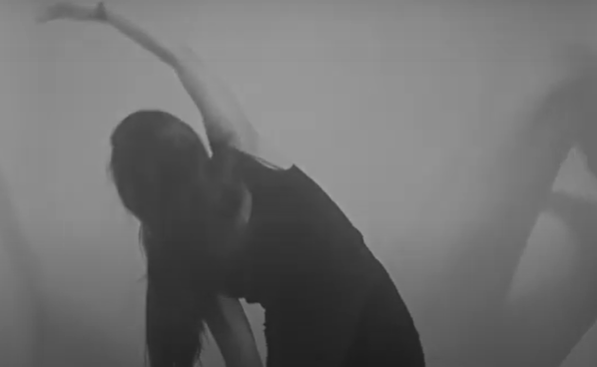Storytelling Mentorship
A storytelling mentorship program for participants to immerse themselves in the power of storytelling and how to craft stories to effect change.
We’ve divided this exciting new offering into two parts: an Indigenous storytelling mentorship, and digital storytelling mentorship with a focus on gender equality.
Cohort 2 is now underway! Stay tuned for their stories coming soon!
View the digital stories from the first cohort here.
”The highlight was sharing a space with storytellers from the North and South. Even though technology has made it easier to connect, building those links between the two spheres doesn't happen enough. So that is why this was special.” - Program participant
“This program should be available to others. I learned how powerful stories are - they are able to change the world.” - Program participant
PART ONE: INDIGENOUS STORYTELLING MENTORSHIP
Facilitated by: Louise Profeit-LeBlanc, story keeper and knowledge holder, First Nation of Na-Cho Nyak Dun.
This mentorship provides participants with a foundation on the importance and power of storytelling. Discussions go deep and include the culture and history of storytelling from an Indigenous perspective. With the help and guidance of Louise, participants explore how storytelling can create powerful connections between yourself, your community, and the land.
Participants work to develop their stories and apply the knowledge learned in their sessions with Louise. The training culminates with participants finalizing and sharing their stories amongst one another.
Louise Profeit-LeBlanc is a member of the Nacho N’yak Dun First Nation of Mayo, in Northeastern Yukon. She is a mother, grandmother, and a Story-Keeper. She presently lives in Wakefield, Quebec with her husband Bob. Louise comes from a long line of traditional storytellers and her repertoire consists of her own personal stories and more specifically ancient stories relative to her homeland, the Yukon. These stories depict how the land was made, how her people lived and survived for thousands of years.
Many of these stories refer to how everything in nature, exists in balance but more importantly depict morals and teachings on how we all can learn to live harmoniously with each other while caring for the land, the water, and all living things. She is grateful for the privilege of having been passed down these stories by her Elders and honoured to be able to share them with all generations and people of all backgrounds, for the last 45 years.
She has travelled extensively sharing these stories at many International Storytelling festivals, universities, and colleges, where she also has provided storytelling workshops using examples of stories to inform the audience of the importance of oral tradition for the healing of the nations.
Louise is also a visual textile artist, poet, and short story writer and continues to demonstrate the necessity of utilizing the power of art and story, to heal, educate and provide opportunities for others to express their culture and strength through the arts. Louise volunteers her time-serving in many capacities and sharing Traditional knowledge with children, mothers at schools and community centres. Louise is a member of the Storytellers of Canada-Conteurs du Canada.
PART TWO: DIGITAL STORYTELLING FOR GENDER EQUALITY MENTORSHIP
Facilitated by: Rani Sanderson - StoryCentre
Participants are joined by six international youth to take part in a unique digital storytelling workshop model that integrated creative writing, oral history, and multimedia to craft a story as a tool for social change.
With a focus on stories of gender equality, the participants work collaboratively, learn from each other and deepen their understanding of how local and global issues of gender equality are interconnected. Each participant uses the tools and skills learned in the mentorship to create their own digital story that explores issues of gender equality to effect change.
Participants meet weekly with Story Centre staff for two-hour virtual training sessions. The training culminates with participants creating personal, digital stories around the theme of gender equality.
Rani Sanderson, Canadian Projects Director
Rani worked for more than 15 years as a film programmer, video artist, and VJ in many cities, countries, islands, clubs, and festivals around the world, before pursuing a second education in environmental studies, with a concentration on community arts, environmental education, and social justice. It was during this time, in 2008, that she was first introduced to StoryCenter, and she has been facilitating digital storytelling workshops ever since. Rani studied film at Ryerson University, and she has a MS in Environmental Studies, York University.
HONORARIUM
Each northern participant receives a $1,500 honorarium at the end of the program. We expect that each participant contributes approximately 3-5 hours per week to the project.
ELIGIBILITY
are between the ages of 21-30
live in Yukon, Northwest Territories, or Nunavut
are able to participate fully in all aspects and meeting times of the program (this means you have access to the internet for live sessions and have a minimum of 3-4 hours per week to participate for the duration of the program.)
love listening to, and telling stories
believe in the transformative power of stories
want to learn the history and art of storytelling
want to gain tools and techniques to create powerful digital stories that inspire and affect change
are curious about different cultures, traditions, and languages both at home and around the world
are interested in learning about advancing gender equality
If you are interested in learning more about the program or to apply to future cohorts email programs@ncgc.ca.
At NCGC, we are committed to ethical storytelling and our programs are rooted in the ten principles of dignified storytelling:
Make sure to check out NCGC’s feature on page 61 of the handbook!




